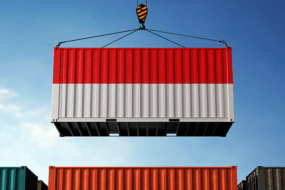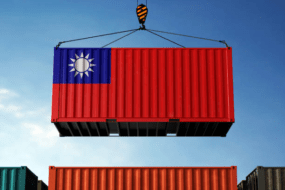- Home
- Trade News
- Economic Impact of Türkiye Ea ...

Two powerful earthquakes struck Turkey and Syria within 12 hours on Monday, killing at least 4,000 people, with the death toll expected to rise. The magnitude-7.8 quake, which hit in the darkness of a winter morning, was followed by a second, 7.5 quake in the middle of the day on Monday, as rescuers in both countries were still attempting to search for survivors.
What is the impact of this earthquake?
Port of Iskenderun
The Port of Iskenderun is located in Turkey’s Hatay region, adjacent to the Mediterranean Sea. The port is a major hub for trade and commerce in the region, with the port serving as an important gateway for goods and services from Europe, the Middle East, and North Africa. Iskenderun is a major transit point for oil, gas, and other commodities, and is also a key destination for crude oil exports. The port is home to numerous industrial facilities, including power plants, shipyards, and other infrastructure. In addition, the Port of Iskenderun also provides a range of services, such as ship repairs, storage, and logistics. Iskenderun is also an important fishing centre, with the port’s fishing fleet catching a wide variety of species each year. Iskenderun is one of the largest ports in the region, and is an important asset to both the Turkish economy and the global economy.
Operations at the Port of Iskenderun have ground to a halt following the deadly earthquake that rocked Turkey and Syria on February 6, 2023. Turkey’s maritime authority said on Monday that the Iskenderun port located in the southern Turkish province of Hatay was damaged due to the quake. The port is currently closed until further notice as authorities assess the damage and make necessary repairs. Industry majors such as Maersk are rerouting its ships to nearby hubs within operational feasibility or holding them at transhipment ports – including Port of Mersin and Port Said.
Gaziantep
Gaziantep is a region located in the south-eastern part of Turkey, and is known for its rich cultural heritage, delicious cuisine, and dynamic economy. It is a major producer of agricultural products, with cereals, olives, cotton, fruits, vegetables, and grain crops all produced in abundance. The region also produces significant amounts of livestock, such as sheep, goats, cows, and poultry.
Gaziantep is an important manufacturing center, particularly in the automotive and food-processing industries. It is home to numerous factories that produce auto parts, leather goods, electronics, furniture, textiles, and home appliances. The food-processing industry produces a variety of items such as cheeses, olives, tomato paste, canned goods, jams, and pastries.
The region is also home to a vibrant wine-making industry, producing the renowned Öküzgözü and Boğazkere wines. These wines are increasingly exported to other regions of the world, and have become a cornerstone of the local economy. Gaziantep also exports minerals such as marble, granite, and gypsum, which are used in the construction industry.
The energy production sector is also important in the region, with several energy companies operating in Gaziantep. These companies produce electricity and natural gas, which is then distributed to the local population.
Malatya
Malatya Region is located in the eastern part of Turkey and is renowned for its agricultural products, such as fruits, vegetables, grains, and nuts. The warm climate of the region makes it an ideal place for cultivating various crops. Not only does the Malatya region produce agricultural goods, it is also well-known for its production of leather, textiles, and furniture.
In addition to its agricultural products, livestock is an important industry in Malatya Region. Sheep, cattle, and poultry are the primary sources of meat in the region. The region is also home to a number of mineral deposits, including lead, zinc, chrome, and boron. As a result, the region has a large mining industry, producing high-quality raw materials for the global market.
Malatya region is a great place to visit for its plethora of sights and activities. Tourists can experience the region’s rich culture and hospitality as well as its beautiful landscapes. Adventure-seekers can take part in outdoor activities, such as mountain biking, hiking, and horseback riding. For a more relaxing experience, visitors can explore the region’s many historical sites, including the ancient city of Malatya.
The region’s economic activity is largely dependent on the agricultural and mineral industries. The region’s farmers and miners are essential to the economy and provide essential jobs to the local population. The region’s government is currently working to diversify its economy by promoting tourism and creating new opportunities for businesses.
Adana
The Adana region of Turkey is a thriving hub of economic activity, boasting a range of industries that contribute to the development and growth of the region. Agriculture is the most prominent industry in the area, with a range of crops being cultivated and livestock farmed. In addition, the manufacturing industry is well-developed, with motor vehicles, building materials, textiles, and metal products all produced in the region. Lastly, the food and beverage industry is also significant, with a number of food-processing and beverage companies operating in the region.
Agriculture is the main economic activity in the Adana region, with the cultivation of grain, cotton, rice, olives, and grapes being particularly common. This agricultural production provides much of the region’s food and raw materials, with farmers and landowners often relying heavily on the sale of their produce. Furthermore, livestock is also a significant contributor to the economy, with the raising of goats, sheep, and cattle providing both food and raw materials for the region.
The manufacturing industry is also well-developed in the Adana region, with a range of products being produced. Motor vehicles, building materials, textiles, and metal products are all manufactured in the area, allowing the region to contribute significantly to the country’s exports. In addition to this, the area is home to a number of food-processing and beverage companies, making it a hub of activity for the food and beverage industry.
Overall, the Adana region is a thriving area in terms of economic activity, with agriculture, manufacturing, and the food and beverage industry all contributing significantly to the area’s economic growth. By relying on the production of crops and livestock, as well as the manufacturing of products and the processing and distribution of food and beverages, the Adana region has become a key player in the Turkish economy.
With this information, we hope to support our fellow Türkiye business owners in recovering their business.
Visit our website to see more about TradeData.Pro features!
To find out more about accessing a new market, you can check out this article which shows you how to use TradeData.Pro to access Global Trade Markets: https://blog.tradedata.pro/say-hello-to-our-new-release-of-tradedata-pro/
The most trustable and reliable source for Trade Data.
TradeData.Pro is proudly made in Singapore. Singapore has been one of the world’s most politically stable countries, with an open and trade-driven economy. TradeData.Pro is presented by CIC, a government-linked company in Singapore CIC is a Join Venture of Zall Smartcom, SGX and GeTS.)
Since the launch of TradeData.Pro in 2018, TradeData.Pro has received overwhelmingly positive remarks from market. This is because TradeData.Pro has wide coverage, low cost, and fast response. There are many leading companies from different industries that have subscribed to TradeData.Pro.
TradeData.Pro was awarded with Singapore Quality Class in 2020 and Stevie Award Gold in 2021. Businesses need information to reveal trends, identify market opportunities, track competitors buyers and suppliers, and better understand supply chain potential.
Finding these critical data has traditionally been challenging. But this information do exist, but as part of government import and export filing requirement. The detailed shipment information which are within these filings constructions the core of the global trade.
TradeData.Pro has gathered and packaged these information as business intelligence. Our solution helps companies understand the flow of goods across borders and features the world’s largest searchable trade database. We do the heavy lifting for you by reviewing, standardising, and cleaning data, then delivering in an intuitive format.
Vietnam has been the hottest industry lately, to stay updated on Vietnam, you can view all these information on Vietnam in here on our platform: https://data.cic-tp.com/asia-trade-data/vietnam-import-export-data
Find the exact product you are interested in here at https://tradedata.pro/trade-database-demo/
To find out more about accessing a new market, you can check out this article which shows you how to use Trade Data Pro to access Global Trade Markets: https://blog.tradedata.pro/say-hello-to-our-new-release-of-tradedata-pro/
Learn how TradeData.Pro works by watching the video below! View here on Youtube as well: https://youtu.be/QQ9wG-CesI8
Business Economy Export Global Import International Trade Markets Opportunities Prices Supplier Trade Data Pro Turkey Worldwide
Leave a Reply Cancel reply
Recent Posts
Archives
- June 2025
- May 2025
- April 2025
- March 2025
- February 2025
- January 2025
- December 2024
- November 2024
- April 2024
- March 2024
- January 2024
- December 2023
- November 2023
- October 2023
- September 2023
- August 2023
- July 2023
- June 2023
- May 2023
- April 2023
- March 2023
- February 2023
- January 2023
- December 2022
- November 2022
- October 2022
- September 2022
- August 2022
- July 2022
- June 2022
- May 2022
- April 2022
- March 2022
- February 2022
- January 2021
Categories
Recent Post
Indonesia Exports: Sunny Outlook Despite Coal, US
- June 30, 2025
- 9 min read
Taiwan Exports: Hitting Record Highs in Challenging
- June 30, 2025
- 7 min read
Forecasting a Brighter Outlook for Chile Imports
- May 30, 2025
- 8 min read
All Tags
Agriculture Automotive Brazil Business Business Opportunities Buyers China Coffee Commodities Crops Ecommerce Economic Economy Electronics Energy Environmental Europe Export Exports Future Garments Global Import India Industries International Trade Leads Leads Generation manufacturing Markets Opportunities Pharmaceuticals Prices Rice Russia Supplier Textiles Trade Trade Data Trade Data Pro Turkey Ukraine United States Vietnam Worldwide









3 replies on “Economic Impact of Türkiye Earthquake”
[…] estimated 8.5% of Turkish exports and 6.7% of Turkish imports come from the earthquake-stricken southeast area. Economists, however, suggest that the earthquakes will likely have little effect on Türkiye’s […]
[…] Turkey adopted policies that favoured economic development and inexpensive credit at the cost of the currency and price stability, and as a result, inflation this year hit its highest level since President Recep Tayyip Erdogan assumed office almost 20 years ago. The rapid price hikes have been attributed by officials to rising commodity prices, which are partially due to Russia’s invasion of Ukraine, as well as other outside causes. Not to mention the recent Turkey earthquake. […]
[…] estimated 8.5% of Turkish exports and 6.7% of Turkish imports come from the earthquake-stricken southeast area. Economists, however, suggest that the earthquakes will likely have little effect on Turkey’s […]